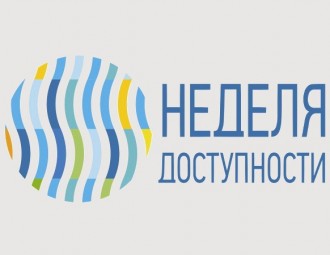Siarhei Drazdouski:Focus is on accessibility of human rights for people with disabilities in regions

The main event of this year’s Accessibility Week is the presentation of the Zero report, a study on the situation with human rights of persons with disabilities.
Belarus hosts the Accessibility Week for the fourth time – this year it can rather be called a decade of accessibility: the events started on April 28 and are to end on May 6. "This time we have shifted the focus from the capital to the regions, - the Coordinator of the Office for the Rights of Persons with Disabilities Siarhei Drazdouski told the "EuroBelarus” Information Service. – Dialogue and conversation about accessibility of human rights for people with disabilities in regions are very important for us. This shift cannot be called the dominant of the Accessibility Week, but not less than half of the events take place outside Minsk this time."
The study shows that "the accessibility of human rights for people with disabilities in the regions is lower; this applies to both education, labor, and health care – to almost all basic human rights." "When it comes to this, the distance from the center does matter. Local community and its development are very important for us – it’s not worth waiting until the state will decide everything for everyone with the help of its institutions and provide opportunities. We should try to change our life now – Belarus is close to the ratification of the Convention on Human Rights that it signed last year", - Siarhei Drazdouski says.
According to him, one of the key events of the Week – Accessibility Forum – in 2016 "is inspiring": "this time twice as many organizations addressed us."
The culmination of the Accessibility Week will be the presentation of the Zero report on May 5 – the research of the civil society experts on the situation with human rights of persons with disabilities at the moment when the Convention on the Rights of Persons with Disabilities was signed. "We assume that in the future the implementation of the Convention will demonstrate progress. But in order to understand whether there is progress or not, we should start somewhere. We tried to create some basic construction and hope that this report will present the fundamental opinion of people with disabilities in the dialogue with the state on ratification of the Convention. The near ratification of the Convention will be followed by a number of actions: the development of the implementation program, introduction of amendments to the legislation – for now everything sounds optimistic, but we don’t want to stay away from the processes; we want the opinion of the persons with disabilities to be heard and taken into account," - Siarhei Drazdouski emphasized.
The Coordinator of the Office for the Rights of Persons with Disabilities also draws attention to the presentation of research on Universal Design, which will be held on May 4 in Minsk: "It is the first research of that kind in the country and we believe that it is a very important one right now in connection with the ratification of the Convention, as this document requires the state to adopt universal design policy. And now this study shows that we are ready to help the state, are ready to talk quite pragmatically on topical issues and problems."
The program of the Accessibility Week is available here (in Russian).
-
03.01
-
07.10
-
22.09
-
17.08
-
12.08
-
30.09



























